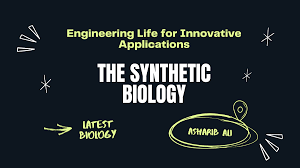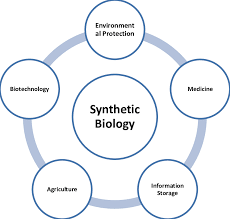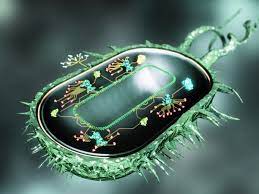In the landscape of science and technology, few fields hold as much promise and potential as synthetic biology. With the ability to engineer life at the molecular level, synthetic biology is revolutionizing industries, from healthcare to agriculture, and from energy to environmental sustainability. This cutting-edge discipline is not just about understanding life; it’s about redefining it for the betterment of society and the planet.
Understanding Synthetic Biology:

At its core, synthetic biology is the convergence of biology and engineering. It involves the design and construction of new biological parts, devices, and systems, as well as the redesign of existing biological systems for useful purposes. By harnessing the power of DNA, proteins, and other biological molecules, scientists and engineers can program cells to perform specific functions, much like software engineers write code for computers.
Applications Across Industries:

- Healthcare: Synthetic biology is revolutionizing healthcare by enabling the creation of novel therapeutics, diagnostics, and personalized medicine. From engineering microbes to produce life-saving drugs to developing gene therapies for genetic disorders, the potential for improving human health is vast.
- Agriculture: With the global population expected to reach nearly 10 billion by 2050, there is an urgent need for sustainable food production. Synthetic biology offers solutions such as genetically modified crops with enhanced nutritional value, increased resistance to pests and diseases, and reduced reliance on chemical pesticides and fertilizers.
- Energy: Traditional energy sources are finite and contribute to environmental degradation. Synthetic biology offers renewable alternatives such as biofuels produced by engineered microorganisms, which can help mitigate climate change while reducing reliance on fossil fuels.
- Environmental Sustainability: From bioremediation to carbon capture, synthetic biology has the potential to address some of the most pressing environmental challenges facing our planet. Engineered microbes can break down pollutants, clean up oil spills, and remove harmful greenhouse gases from the atmosphere.
Ethical and Societal Considerations:

As with any powerful technology, synthetic biology raises ethical, legal, and societal concerns. Questions about biosecurity, bioterrorism, genetic privacy, and equitable access to benefits must be carefully considered and addressed. It is essential to engage stakeholders from diverse backgrounds, including scientists, policymakers, ethicists, and the public, in conversations about the responsible development and deployment of synthetic biology.
The Future of Synthetic Biology:

The field of synthetic biology is evolving rapidly, driven by advances in genetics, bioinformatics, automation, and interdisciplinary collaboration. As our understanding of biology deepens and our tools become more sophisticated, the possibilities are endless. From engineering microbes to produce renewable materials to creating synthetic organs for transplantation, the future of synthetic biology is limited only by our imagination.
Conclusion:
Synthetic biology holds tremendous promise for addressing some of the most significant challenges facing humanity, from healthcare and agriculture to energy and the environment. By harnessing the power of biology, we can engineer life for a better tomorrow. However, with this power comes great responsibility. It is incumbent upon us to ensure that synthetic biology is developed and deployed in a manner that is ethical, equitable, and sustainable. Only then can we truly unlock its full potential for the benefit of society and the planet.


